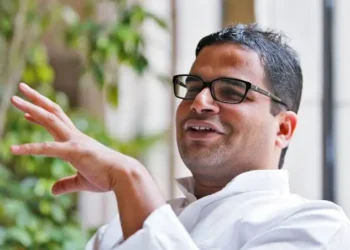Ousted Syrian President Bashar al-Assad finds asylum in Russia following the rapid collapse of his regime. As rebels tighten their grip on Damascus, uncertainty looms over Syria’s future and the fate of its controversial leader.
BY PC Bureau
Bashar al-Assad, the ousted president of Syria, and his family have arrived in Moscow after rebels seized control of Damascus, the nation’s capital, on Sunday. Russian news agencies, citing a Kremlin insider, confirmed the family’s arrival and the asylum granted by Russian authorities on “humanitarian grounds.”
“Assad and members of his family have arrived in Moscow,” the source reported. The Kremlin has described the asylum offer as a humanitarian gesture, marking a dramatic chapter in Syria’s political turmoil.
Earlier in the day, the Russian government announced Assad’s resignation and departure to an undisclosed location. “As a result of negotiations between Bashar al-Assad and several participants in the armed conflict in the Syrian Arab Republic, he decided to relinquish his presidential post and leave the country, ensuring a peaceful transfer of power,” read a statement from Russia’s foreign ministry.
This announcement came amidst swirling rumors about Assad’s fate. The rebels’ rapid advance into Damascus fueled speculation that he might seek refuge in Russia or Iran. Just days prior, Assad was reported to have met with a senior Iranian official in Damascus. Iranian news outlets even published a photograph of the meeting, heightening conjecture about his possible destinations.
The last public sighting of Assad occurred over a week ago, during the surprise rebel offensive that began with the seizure of northern Aleppo. In a series of swift advances, rebel forces captured multiple cities, dismantling the regime’s strongholds and culminating in their entry into Damascus.
In the Syrian capital, chaos has erupted as residents grapple with the dramatic power shift. Panicked citizens have flooded the streets, rushing to stockpile supplies and empty ATMs. Protests have broken out in suburban areas, where demonstrators toppled statues of Assad’s father, Hafez al-Assad—a symbolic rejection of the regime’s decades-long dominance.
Meanwhile, Moscow reportedly secured assurances from Syrian insurgents guaranteeing the safety of Russian military bases and diplomatic outposts in Syria. These guarantees appear to be part of Russia’s broader strategy to preserve its interests in the region as Assad’s regime collapses.
Adding to the intrigue, the Syrian Observatory for Human Rights confirmed Assad’s departure from Damascus International Airport just before his forces abandoned the facility. Unverified reports have speculated that the ousted president might have been involved in a fatal plane crash, though these claims remain unsubstantiated, further clouding the narrative surrounding his escape.
This upheaval marks a seismic shift in Syria’s political landscape, as the rebel group Hayat Tahrir al-Sham (HTS) consolidates power. The faction, which has historical ties to Al-Qaeda, declared a symbolic victory by capturing Homs, a city long regarded as a bastion of Assad’s regime. Their takeover of Sednaya Prison—a grim emblem of the Assad government’s notorious detention practices—underscored the regime’s collapse.
As Syria hurtles toward an uncertain future, the Assad family’s exile in Moscow represents both an end and a beginning—closing the chapter on a 50-year-old regime while plunging the nation into a precarious new era.












